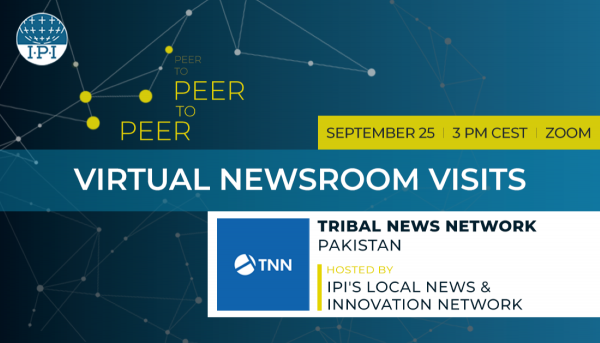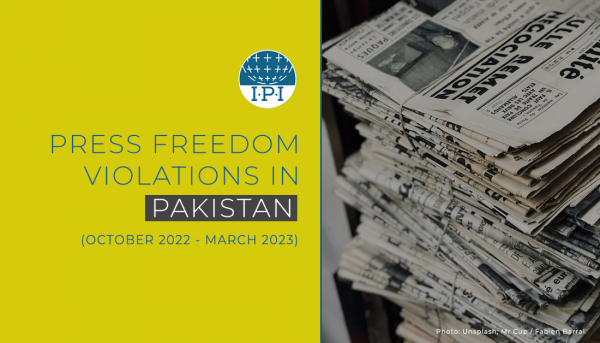Umar Cheema is an investigative journalist for The News, the largest English-language newspaper in Pakistan. He was awarded the Daniel Pearl Journalism Fellowship in 2008, during which he worked at The New York Times. In September 2010, Cheema was abducted, beaten, purposely humiliated, photographed against his will and dumped six hours later outside Islamabad. Immediately after his release, he told his story to the public.
IPI: Is the Pakistan government making any effort to end the threats and violence directed at journalists?
UC: If history [suggests] that there are no serious efforts [to combat attacks on journalists] in war, then [the government is] not going to do [anything about] it in the near future … they were not expecting such a vibrant media, such a vocal media. Every potential government, as long as they remain in the opposition, professes complete faith in the media, that the media is doing a very good job. No sooner do they join the government, then they start attacking the media and they start feeling annoyed [by] the media. So in such a situation, I see that they will roll back what freedom has already been granted to the media.
IPI: Obviously, not every journalist who has suffered has spoken about their experiences like you have. For those who have, is the government doing anything to follow up on their cases?
UC: Not at all. There were two investigation committees set up to investigate my case. One partly was to hold a criminal investigation; the other was a judicial commission. The judicial commission submitted its recommendations … way back in January earlier this year. They were only shared recently with the senate committee, [which] had [to] beg over and over again because the government was sitting on [the recommendations]. They didn’t want to share them; they didn’t want to honor the recommendations. You can imagine the swiftness of the government, how diligently they are pursuing my case. There is no interest.
IPI: What about the public interest of the Pakistani people?
UC: Whatever the media is doing, they are doing it because they are widely and legitimately acknowledged by the public. People realise that the media are doing what should have been done by the government. There was a time when people would go to the police station to register complaints, now they go to the media. People realise that we know many things about the government, and the media is helping in making informed decisions about the government.
IPI: Do you think many other journalists are self-censoring themselves due to the violence and threats?
UC: Yes, there are many, I think. You know that when you become vocal, when you become bold, gathering courage does not happen in the absence of fear. Fear remains; you have the fear. But you have a judgment that there is something better than fear. [Not everybody can] make this judgment. But there are some who make this judgment, the judgment to speak up so that others are not targeted in the way that one has been targeted.
IPI: Have you yourself ever hesitated to say something because of potential consequences?
UC: Had I remained silent, I would have regretted it my whole life. The decision to speak up was one I would never regret, and it was the right decision. It insulates you from the threats. [In] this way, you can keep other journalists safe. If I had remained silent, my attackers would have blackmailed me for my


